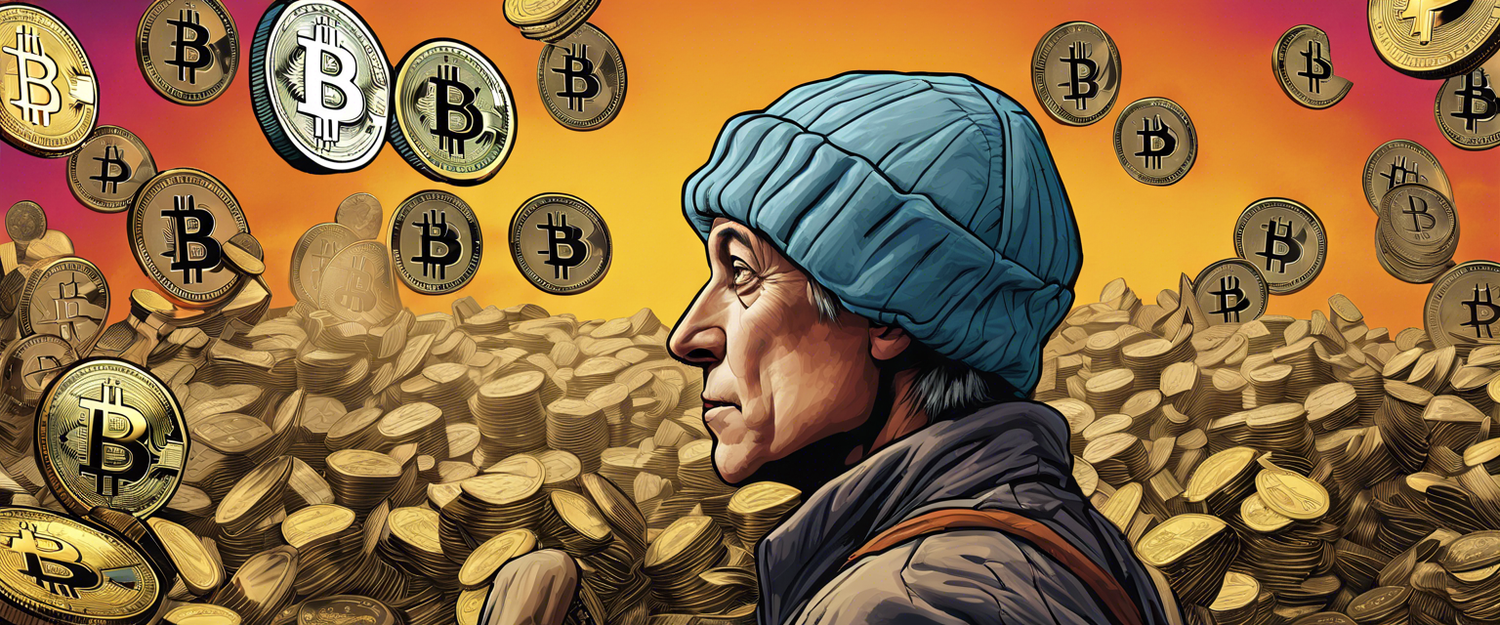Is Bitcoin Exacerbating Wealth Inequality? A Look at the ECB's Findings
On October 23, 2023, a report released by the European Central Bank (ECB) provided fresh insights into the implications of Bitcoin's rising valuation. According to BlockBeats, the ECB suggests that Bitcoin's appreciation may be contributing to wealth inequality, particularly disadvantaging those who get involved later in the cryptocurrency market.
Understanding Wealth Inequality in the Age of Bitcoin
The ECB's report alleges that early adopters of Bitcoin are reaping significant rewards, while latecomers are left to navigate a highly volatile investment landscape. This situation raises important questions about the broader economic and social implications of cryptocurrency adoption.
Bitcoin’s Role as a Speculative Asset
Europe's central bank has categorized Bitcoin as primarily a speculative asset with little to no productive economic contribution. In this framework, Bitcoin's dramatic price fluctuations are viewed as destabilizing, posing risks not only to individual investors but also to the financial system at large.
Central Bank Digital Currencies (CBDCs) as an Alternative
In contrast to Bitcoin, the ECB presents central bank digital currencies (CBDCs) as a more stable and inclusive financial tool. The report highlights how CBDCs could benefit a wider range of the population by offering a more secure and regulated means of digital transactions.
Criticism of the ECB's Perspective
While the ECB’s report offers a critical take on Bitcoin, it hasn't gone without its critics. Many advocates for cryptocurrency argue that the bank’s analysis is flawed and demonstrates a fundamental misunderstanding of Bitcoin's long-term potential.
Bitcoin as a Store of Value
Critics contend that by labeling Bitcoin solely as a speculative asset, the ECB overlooks its emerging role as a store of value, similar to traditional assets like gold. The increasing price of Bitcoin, some analysts argue, indicates its growing recognition as a hedge against inflation and economic instability.
The Complicated Relationship of Bitcoin and Wealth
As society navigates the complexities introduced by cryptocurrencies, the conversation around wealth distribution and asset valuation continues to evolve. The narrative surrounding Bitcoin is rife with contention, highlighting differing perspectives on its impact on financial markets and societal structures.
The Future of Bitcoin and Economic Equity
As the debate continues, it remains essential for policymakers, investors, and the public to critically assess the implications of Bitcoin's rise. Emphasizing financial literacy and equitable access to investments could help mitigate the wealth disparities highlighted by the ECB.
Conclusion
The ECB's contrasting views on Bitcoin and CBDCs prompt critical discussions on wealth inequality, asset valuation, and the future of money. Understanding these dynamics is crucial as the financial landscape undergoes a profound transformation.



اترك تعليقًا
تخضع جميع التعليقات للإشراف قبل نشرها.
This site is protected by hCaptcha and the hCaptcha Privacy Policy and Terms of Service apply.